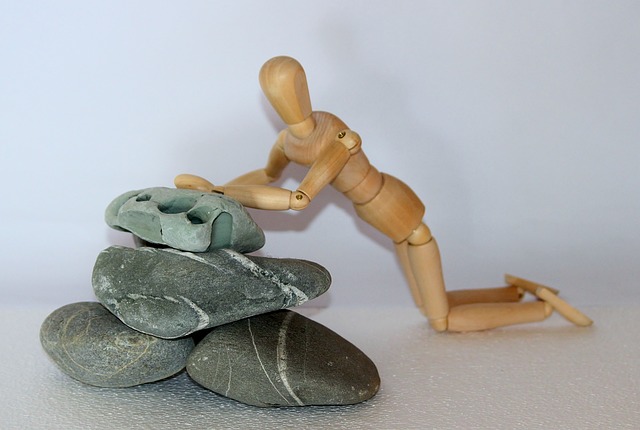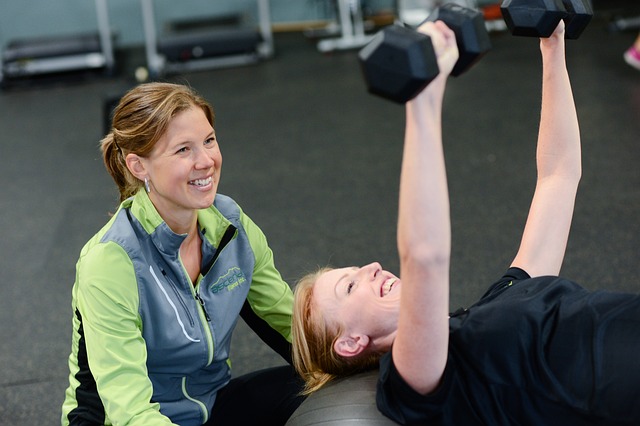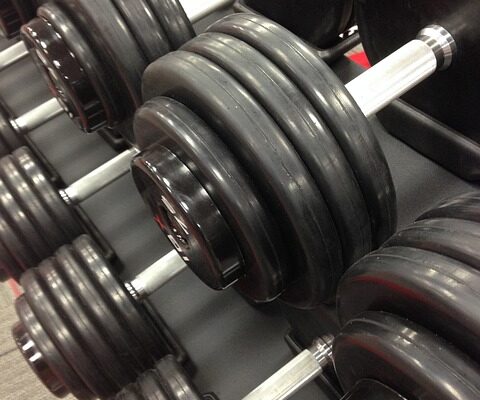The advantages of heavy-weight lifting exercise go beyond muscle growth and looking good. In general, resistance exercise offers a slew of benefits, including increased lean mass, retention of lean mass during calorie restriction, greater fat oxidation and lipolysis, decreases in visceral and subcutaneous fat, and improvements in body composition.
Lifting heavy weights, contrary to what you may have heard in the high school locker room or seen on social media, does not inherently imply big, bulky muscles.
Experts believe the contrary is true. Training with greater loads does not suddenly make you muscular…it requires a concentrated effort over a long period of time for it to happen. You will undoubtedly gain muscle, but not enough to bulk up.
So, what happens if you lift heavier weights? The advantages of heavy lifting extend beyond muscular growth. Here are some reasons why you consider adding weight the next time you go to the gym.
How Heavy Is Too Heavy?
What one person finds heavy may appear light to another, and vice versa. This is due to the fact that what constitutes heavy is subjective.
When it comes to resistance training, it’s not the number on the dumbbell, plate, or weight stack that decides if something is heavy or not; it’s the number of properly done repetitions you can execute with a particular load.

This means that if your form is shaky, the weight is too heavy for you. For example, if you can execute 15 goblet squats with 40 pounds but only two reps of chest press with the same load, the squats would be labeled ‘light,’ and the chest press would be called ‘heavy.’
Advantages of Heavy Lifting
Increasing your training intensity implies you’ll enjoy benefits regardless of your age. Indeed, older folks can greatly benefit from increasing their training load. Lifting big weights, in particular, increases bone strength, avoids muscle loss, improves body composition, and can help prevent falls and enhance functional performance—all of which are significant in the elderly.
Increases bone strength
Bones age in the same way as individuals do. They carry you all day, every day, and if you don’t take care of them, you may develop bone problems in the future.
Bones can grow brittle and weak over time, making you more vulnerable to falls and bone fractures. While this may appear to be innocuous, bone and joint breakdown in the elderly affects their quality of life by causing pain, inflammation, and stiffness.
It’s logical that those with weak bones might be hesitant to carry larger weights; nonetheless, research reveals that those people gain the most.
Another study found that resistance training increased muscle strength, bone density, and quality of life in older persons.
Muscle Gain and Muscle Preservation
Lifting big weights increases not only muscle but also prevents muscle loss. We lose muscle as we age, and avoiding that muscle loss is, in my opinion, one of the essential things we can do for long-term health, quality of life, and “anti-aging.”
Unfortunately, we lose lean muscle mass, strength, and power as we age. Resistance training with suitable loads can help to postpone and reduce such losses.
You may be in danger of muscle loss if you are on a weight loss regimen with a calorie deficit. When you don’t consume enough calories (calorie deficit), your body will use fat and muscle as fuel, especially if you are not eating enough protein.
Lifting larger weights has been shown in studies to help prevent muscle loss and preserve muscular mass.
Enhances Body Composition
Lifting big weights is an excellent way to improve your body composition. According to research, increasing the exercise load and volume promotes fat reduction while also improving muscular hypertrophy.
Track your body fat percentage to see if you’ve been gaining muscle and reducing fat at the same time, changing your body composition. To determine your starting point, use this body fat calculator. Because muscle and fat do not alter overnight, track your body fat every 4-6 weeks to get a better understanding of your progress.
Falls in Older Adults May Be Prevented
According to some studies, one in every four older individuals falls each year; after you’ve fallen once, your chances of falling again quadruple. Falling is dangerous for the elderly. The result is typically considerably worse than a few bumps and bruises—falling harm can involve shattered bones, head injury, and, in extreme cases, death.

Preventing falls is critical for the health of your loved ones. Resistance training and higher weights can enhance muscle strength and bone health and lower the chance of falling.
It enhances functional performance.
Getting around as you become older can be tough. All of the aches and pains that occur make routine day-to-day tasks difficult. Your quality of life will increase if you can move more easily. Heavy weight lifting can assist with this.
Training with larger loads, rather than lesser loads, has been demonstrated to improve functional performance and strength in older persons.
Other studies have found comparable results in terms of improved balance, posture, gait, and strength.
Safety Recommendations
If you’re ready to start lifting bigger weights, you should consider several key safety precautions beforehand.
If you can afford it, employ a trainer or coach. They will assist you with technique and load management (e.g., going heavier, staying lighter). It may also be beneficial to join a group fitness program that involves resistance training, such as CrossFit, which has coaches that monitor movement and load.

Experts recommend mastering the exercise before increasing the weight for individuals who desire to lift heavier without a trainer. The goal is not to transfer weights from point A to point B; rather, the goal is to execute the exercise correctly in order to gain the most benefit while avoiding injury. Aim at loads that allow you to perform 8-10 reps with perfect form. As you continue to lift, your body will be better prepared to manage bigger loads.
Try not to get ahead of yourself, and remember to trust the process, be patient, and keep consistent.
To Conclude
The advantages of heavy-weight lifting exercise extend beyond muscular growth. Including heavy strength training in your workout program, whether you’re young or elderly, can help you feel younger, enhance your body composition, and build bone health.
It is critical to remember that weightlifting is not something to be taken lightly. Lifting heavy weights should not be your goal when it comes to strength training. You need to be patient and focus on progress without injuring yourself. Before beginning any new weight training plan, consult with a healthcare professional.
